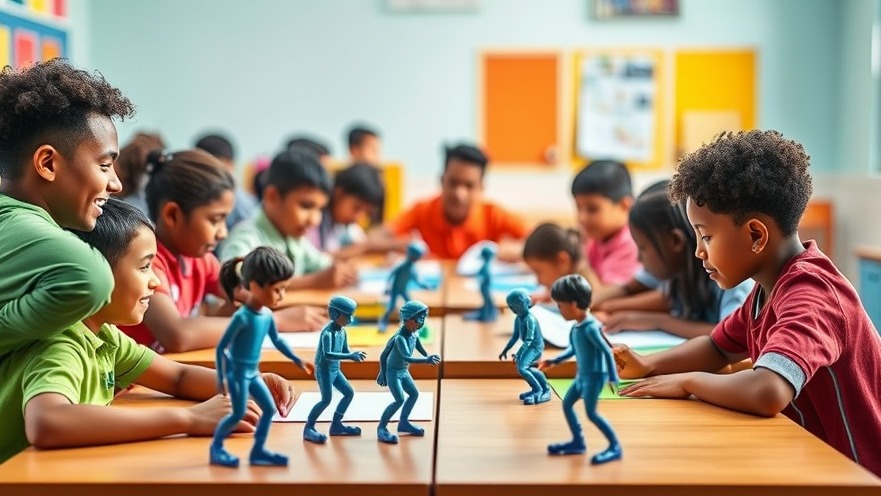
How Gardening Transforms Learning in Urban Schools
In the hustle and bustle of urban education, a novel approach to teaching is taking root: gardening. Programs such as FoodPrints are redefining how students engage with their curriculum by integrating hands-on gardening experiences into their learning. This innovative approach not only stimulates curiosity but also enhances the educational process, creating a rich learning environment where students can experience science, math, and nutrition first-hand.
In 'How Urban Schools Bring Lessons to Life Through Gardening,' the engaging integration of gardening into education highlights key insights that we are expanding upon here.
Active Learning: A New Paradigm for Education
Active learning is at the forefront of educational reform, and gardening provides a perfect framework for this style of teaching. When children step into a garden, they are not merely passive recipients of knowledge; they become active participants in their learning journey. They can touch, smell, and taste the food they’re learning about. This multi-sensory approach significantly enhances engagement and sociocultural awareness among students as they learn to appreciate the natural world around them.
Science Meets Nature: Essential Lessons from the Garden
As teachers rotate students through various gardening stations, they engage them in lessons that encapsulate science curriculum standards. From exploring how plants reproduce and thrive to observing ecosystems in action, students are immersed in a living classroom. Notably, the simple act of planting a sweet potato can teach children how propagation works, allowing them to witness firsthand how one plant can yield a harvest.
Mastering Math through Recipes
Combining gardening with hands-on cooking experiences opens new doors in mathematics education. For instance, as students prepare meals from the produce they've harvested, they perform real-world math calculations when doubling or tripling recipes. This method of integrating math into everyday scenarios not only solidifies their numerical skills but also reveals the practical applications of math and science in the world outside the classroom.
Enhancing Vocabulary through Taste
Food tastings, such as sampling different varieties of apples, serve as another profound learning experience. Students learn to describe the flavors, textures, and other sensory attributes of food, using specialized vocabulary they might not encounter in traditional lessons. This progressive teaching method develops both their language skills and their engagement with the material, making their learning experience more holistic.
Cultivating Empathy and Problem-Solving Skills
Gardening not only enriches academic learning but also fosters emotional and social growth. Children learn to work collaboratively, share responsibilities, and develop empathy for their environment and each other. These lessons are crucial in developing the social fabric of diverse communities within urban settings. The hands-on experiences in gardening help students become problem solvers and critical thinkers, skills that serve them well in harmonizing with the world around them.
Challenges and Opportunities: The Role of Educators
While the benefits of such programs are clear, educators face unique challenges. Often, garden-based learning is not officially integrated into existing curriculums, presenting hurdles in terms of resources, training, and planning. Educators are tasked with creatively adapting materials to align with state standards while ensuring that the experiences are meaningful. Yet, the potential rewards of cultivating curiosity and a love for learning in children are vast.
Looking Ahead: The Future of Urban Education
As urban schools continue to innovate, gardening programs like FoodPrints represent a promising future for education. By embracing these frameworks, educators can reshape learning into an engaging, multi-dimensional experience. This approach not only enhances academic achievement but also prepares students to be more mindful citizens who give back to their communities.
Join the Movement: Bringing Gardens into Urban Classrooms
Parents, educators, and community leaders all have a role to play in supporting gardening initiatives in schools. By advocating for such hands-on learning opportunities, we can enhance education in urban environments and inspire a new generation of learners who are connected to the world around them. The benefits are clear—let's nurture our children’s education through the magic of gardening and experiential learning.
 Add Row
Add Row  Add
Add 




Write A Comment